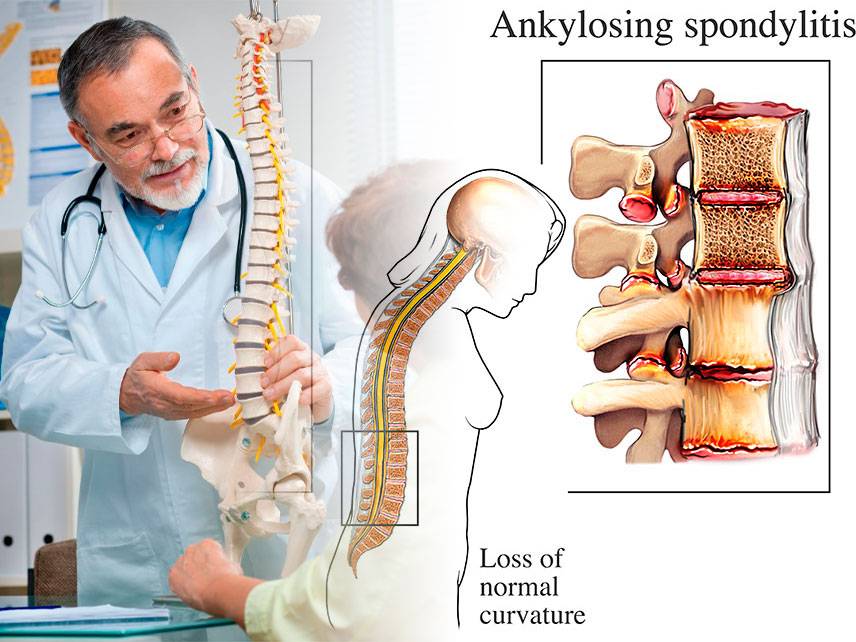
Ankylosing spondylitis: symptoms, causes, diagnosis and treatment.
Ankylosing spondylitis is a chronic, inflammatory rheumatic disease which primarily affects the spine and sacroiliac joints. It is a form of arthritis which can cause stiffness and pain in the spine, hips, ribs and other joints. Symptoms of ankylosing spondylitis may include fatigue, back pain and stiffness, reduced flexibility, chest pain, loss of appetite, and tenderness. The cause of ankylosing spondylitis is not known, but it is believed to have an autoimmune or genetic component. Diagnosis of ankylosing spondylitis is made through a combination of physical examination, imaging studies, and a review of family history. Treatment of ankylosing spondylitis may include medications, physical therapy, exercise, and lifestyle modifications. Surgery may also be recommended in some cases.




